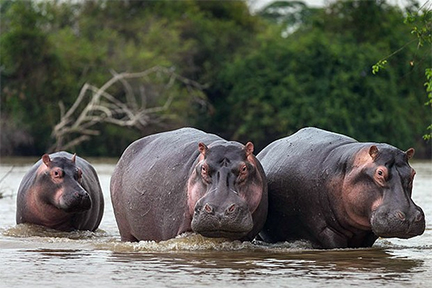Biodiversity & Environment
Exotic Animals
- 19 Apr 2021
- 3 min read
Why in News
Recently, the Delhi High Court directed the Centre to take a decision on framing rules to confer protection for exotic animals that are currently not under the purview of the Wildlife (Protection) Act, 1972.
- The court’s order came in response to a petition filed by animal rights group, People for the Ethical Treatment of Animals (PETA) India about the status of a male hippopotamus rescued from the Asiad Circus in Uttar Pradesh.
- Earlier in June 2020, the Ministry of Environment, Forest and Climate Change issued an advisory to streamline and formalise the process of importing live exotic animals.
Key Points
- Exotic Animals:
- The term exotic does not have a set definition but it usually refers to a wild animal or one that is more unusual and rare than normal domesticated pets like cats or dogs.
- These are those species which are not usually native to an area and are introduced to an area by humans.
- Provisions Related to Illegal Trade of Animals:
- Illegally traded exotic animals are confiscated under Section 111 of the Customs Act, 1962 which is read with the provision of the Convention on International Trade in Endangered Species of Wild Fauna and Flora (CITES) and the Foreign Trade Policy (Import-Export Policy) of India.
- CITES is an international agreement between governments. Its aim is to ensure that international trade in specimens of wild animals and plants does not threaten the survival of the species. India is a party to it.
- Also, Sections 48 and 49 of the Wildlife Protection Act, 1972 prohibit trade or commerce in wild animals, animal articles or trophies.
- Illegally traded exotic animals are confiscated under Section 111 of the Customs Act, 1962 which is read with the provision of the Convention on International Trade in Endangered Species of Wild Fauna and Flora (CITES) and the Foreign Trade Policy (Import-Export Policy) of India.
Hippopotamus
- About:

- Hippopotamus, also called hippo or water horse, is an amphibious African ungulate mammal.
- It is considered to be the second largest land animal (after the elephant).
- Hippos are well adapted to aquatic life. The ears, eyes, and nostrils are located high on the head so that the rest of the body may remain submerged.
- Hippopotamuses were extinct in northern Africa by 1800 and south of Natal and the Transvaal by 1900. They are still fairly common in East Africa, but populations continue to decrease continent wide.
- Scientific Name:
- Hippopotamus amphibius.
- Threats:
- Human-wildlife conflict and habitat encroachment.
- Often killed for their meat under the guise of protection, and they are also hunted for hippo fat and their ivory canine teeth.
- Protection Status:
- IUCN Red List: Vulnerable
- CITES: Appendix Ill






